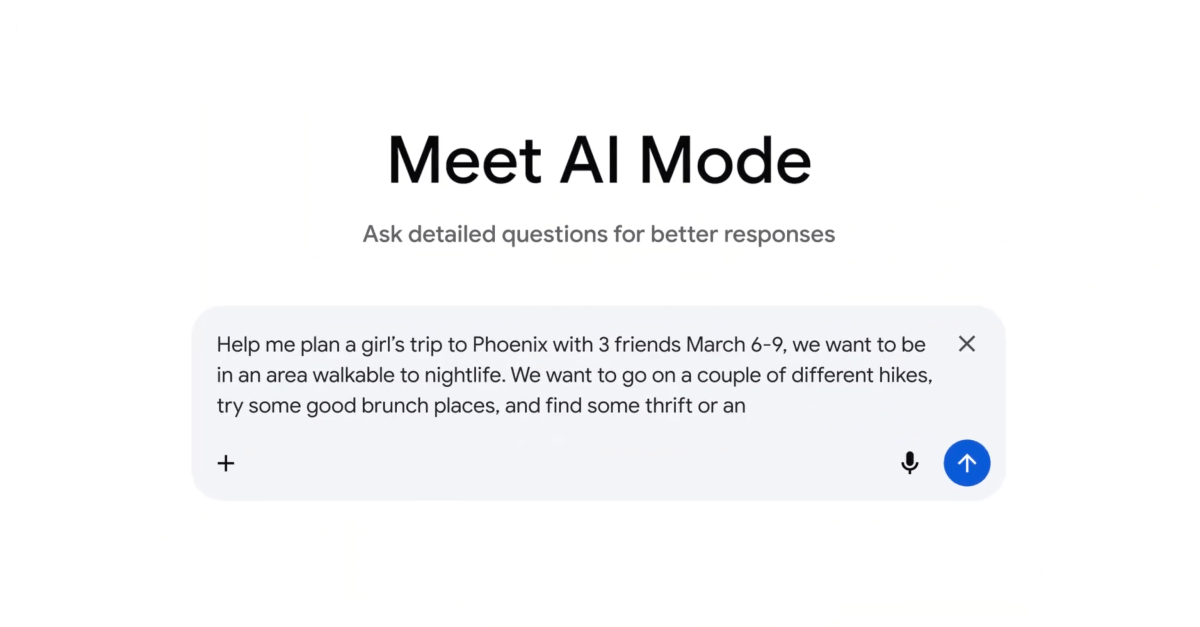Google users can now describe their next trip to its AI mode in Search and select the “Create with Canvas” option, which will create an itinerary in a side panel with data on flights and hotels. The document it puts together can generate potential plans with suggestions based on user input, as well as photos and reviews from Google Maps.
You can refine the plan it develops with follow-up questions or additional requests, such as requesting hotel suggestions based on pricing and amenities or activities based on travel time. Users in the US will now have access to trip planning with Canvas on desktop, if they have opted for AI mode in Labs, plans created will be stored in the history of AI mode.
The Canvas feature launched for Gemini in March as a dynamic workspace that could display real-time coding output or other information, like constantly updated study plans, and has since expanded to become a part of the AI mode in Search. Google announced trip planning features for Gemini last year, but this brings them closer to everyone who uses its search engine, which probably isn’t good news for other travel companies like Kayak and Expedia, which are also building AI-powered features of their own.
Google is also expanding the types of activities that can be booked agentically with the AI mode. Labs users in the US can already use AI Mode’s agent for bot-automated booking of event tickets and local appointments, and starting this week, agentic restaurant bookings are rolling out to all US users, not just Labs users. AI mode shows you a list of options with links to finalize the booking through Google’s partners like OpenTable, Resy, Tock, Ticketmaster, StubHub, SeatGeek, etc.
Google says it’s also partnering with hotel companies and online booking platforms, including Booking.com, Expedia, Marriott International, and Wyndham Hotels & Resorts, to eventually launch agentic booking for flights and hotels as well.
Google is also announcing the expansion of its AI-powered flight deals search within Google Flights, which is already available to users in the US, Canada, and India. Google says the rollout has already begun in more than 200 countries and territories around the world with support for more than 60 languages.
